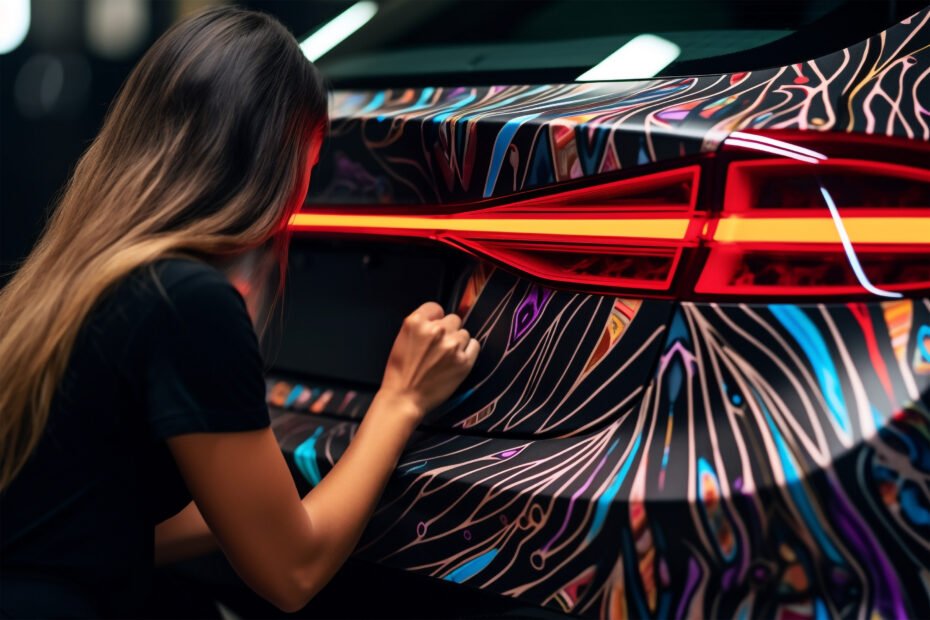Everything You Need to Know About Car Wraps
Car wraps have become increasingly popular in recent years as a cost-effective and creative way to customize and protect vehicles. Whether you want to give your car a fresh new look or promote your business, car wraps offer a versatile solution. In this blog post, we will cover everything you need to know about car wraps, from their benefits to the installation process.
What are Car Wraps?
Car wraps are large vinyl decals that are applied directly to the surface of a vehicle. They can completely transform the appearance of a car, giving it a new color, pattern, or design. Car wraps are available in a wide range of colors and finishes, including matte, glossy, metallic, and even textured options.
Benefits of Car Wraps
There are several benefits to using car wraps:
- Customization: Car wraps allow you to express your personal style and make your vehicle stand out from the crowd. You can choose from a variety of designs or even create your own.
- Protection: Car wraps act as a protective layer, shielding your vehicle’s original paint from scratches, UV rays, and other environmental damage. They also help preserve the resale value of your car.
- Advertising: Car wraps provide a unique opportunity for businesses to advertise their products or services. By turning your vehicle into a moving billboard, you can reach a wide audience wherever you go.
- Cost-effective: Compared to a custom paint job, car wraps are a more affordable option. They can be easily removed or replaced, allowing you to change the look of your car without breaking the bank.
Types of Car Wraps
There are two main types of car wraps:
- Full Wraps: Full wraps cover the entire surface of the vehicle, including the windows. They provide a seamless and eye-catching look.
- Partial Wraps: Partial wraps cover only a portion of the vehicle, such as the hood, roof, or doors. They are a more budget-friendly option while still offering a unique appearance.
Car Wrap Installation Process
The installation of a car wrap should be done by a professional to ensure a smooth and long-lasting result. Here is a general overview of the installation process:
- Cleaning: The vehicle’s surface is thoroughly cleaned to remove any dirt, wax, or debris that could affect the adhesion of the wrap.
- Measurement and Design: The car wrap is measured and designed to fit the specific make and model of the vehicle.
- Printing: The design is printed onto high-quality vinyl using specialized printers and inks that are resistant to fading and peeling.
- Application: The vinyl wrap is carefully applied to the vehicle, ensuring a smooth and bubble-free installation.
- Trimming and Finishing: Any excess vinyl is trimmed, and the edges are heat-sealed to prevent lifting or peeling.
Maintenance and Care
To ensure the longevity of your car wrap, it is important to follow these maintenance tips:
- Hand Washing: Avoid using automated car washes or high-pressure washers, as they can damage the wrap. Instead, hand wash the vehicle using a mild detergent and a soft cloth.
- Avoid Harsh Chemicals: Do not use abrasive cleaners, solvents, or wax products on the wrap, as they can cause discoloration or damage.
- Protect from Sun Exposure: Prolonged exposure to the sun’s UV rays can fade the colors of the wrap over time. Whenever possible, park your car in a shaded area or use a car cover.
- Regular Inspection: Check the wrap periodically for any signs of lifting, peeling, or damage. If you notice any issues, contact a professional to have them repaired.
Conclusion
Car wraps offer a versatile and cost-effective way to customize and protect your vehicle. Whether you want to showcase your personal style or advertise your business, car wraps provide endless possibilities. By understanding the benefits, types, installation process, and maintenance tips, you can make an informed decision and enjoy the many advantages of car wraps.
